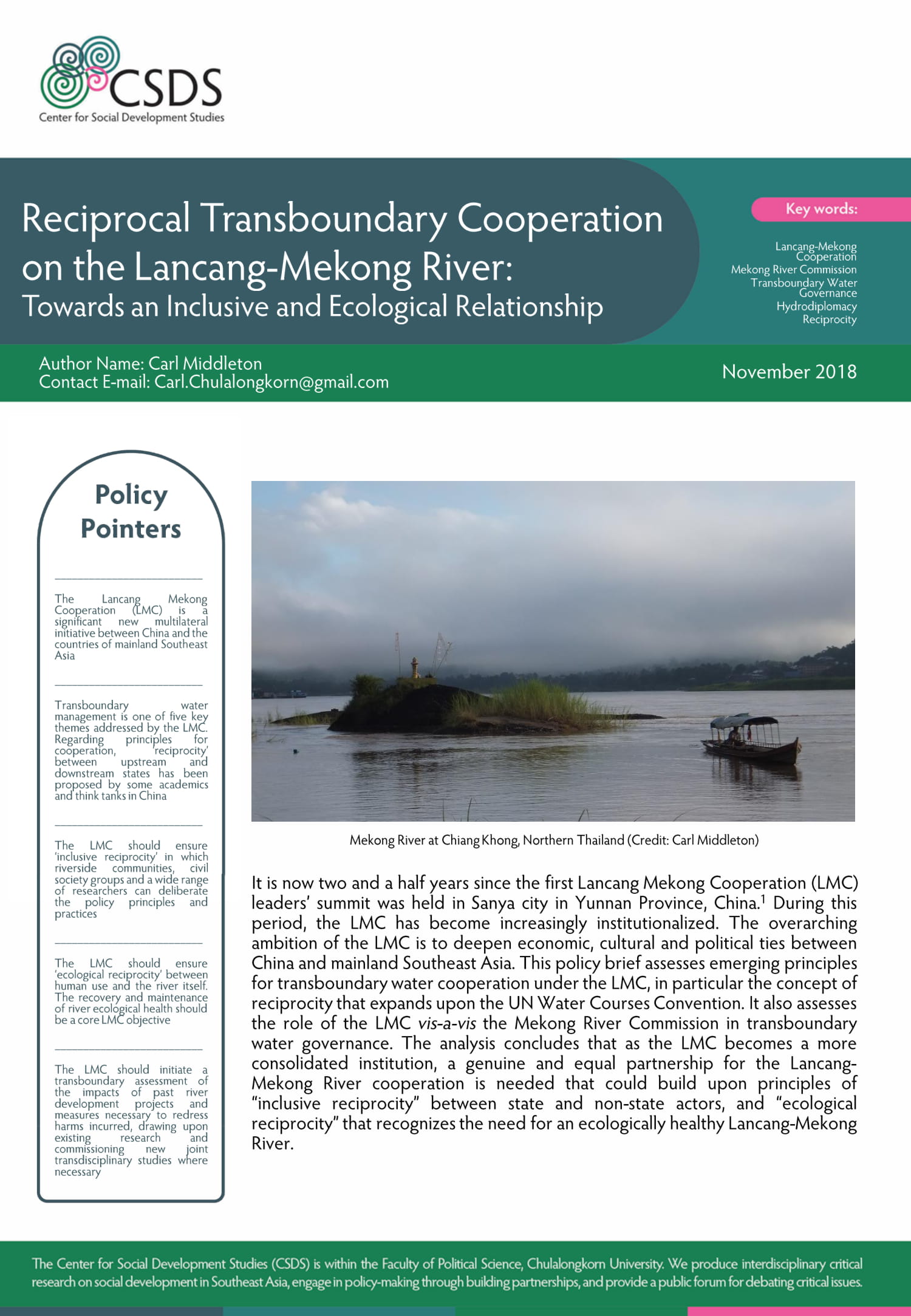POLICY BRIEF: Reciprocal Transboundary Cooperation on the Lancang-Mekong River: Towards an Inclusive and Ecological Relationship
/Publication date:
November 2018
Publication:
Reciprocal Transboundary Cooperation on the Lancang-Mekong River: Towards an Inclusive and Ecological Relationship
Download the policy brief here.
Visit the Water governance and knowledge production on the Lancang-Mekong River project page here.
Author:
Carl Middleton
Summary
It is now two and a half years since the first Lancang Mekong Cooperation (LMC) leaders’ summit was held in Sanya city in Yunnan Province, China. During this period, the LMC has become increasingly institutionalized. The overarching ambition of the LMC is to deepen economic, cultural and political ties between China and mainland Southeast Asia. This policy brief assesses emerging principles for transboundary water cooperation under the LMC, in particular the concept of reciprocity that expands upon the UN Water Courses Convention. It also assesses the role of the LMC vis-a-vis the Mekong River Commission in transboundary water governance. The analysis concludes that as the LMC becomes a more consolidated institution, a genuine and equal partnership for the Lancang-Mekong River cooperation is needed that could build upon principles of “inclusive reciprocity” between state and non-state actors, and “ecological reciprocity” that recognizes the need for an ecologically healthy Lancang-Mekong River.



